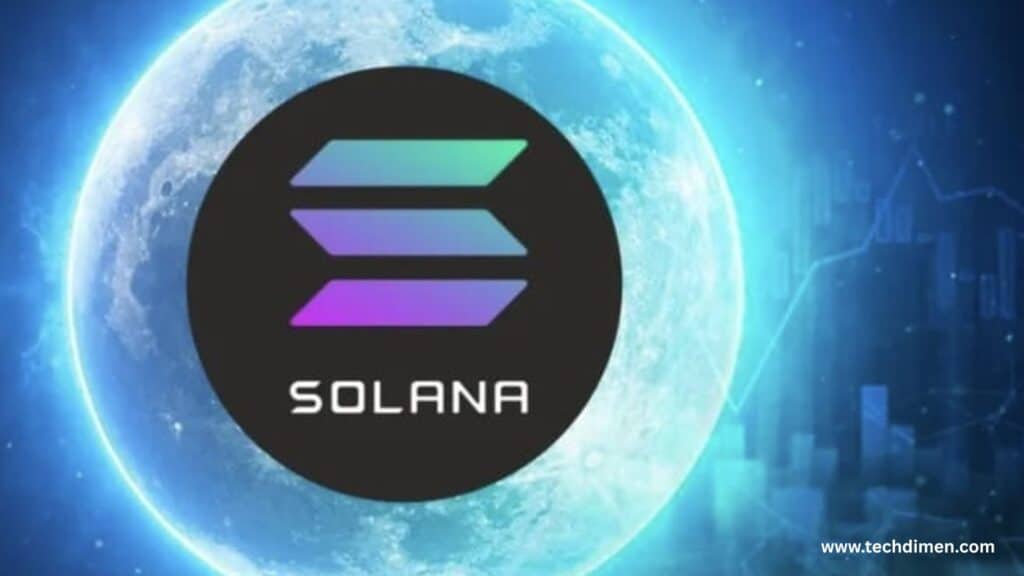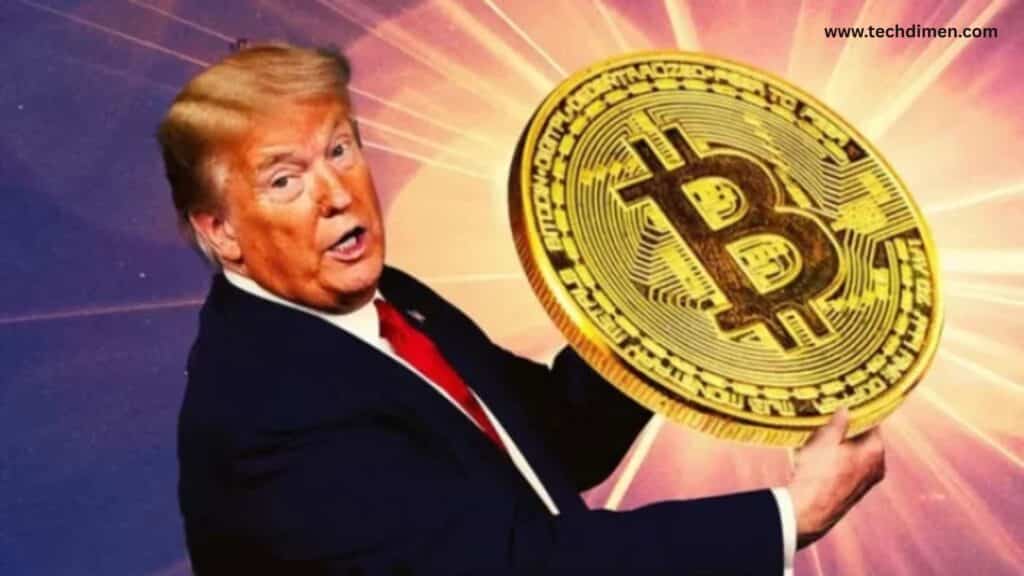In January 2025, just days before his second presidential inauguration, Donald Trump launched a cryptocurrency that few expected but everyone noticed. Dubbed the $TRUMP coin, this digital asset became more than just a meme token. It grew into a political statement, a financial experiment, and, unsurprisingly, a magnet for controversy.On insert launch date, Donald J. Trump officially stepped into the crypto spotlight with the launch of the $TRUMP meme coin, setting the internet ablaze and sending shockwaves through both political and financial ecosystems.
But this isn’t just another speculative token chasing meme coin hype. It’s a calculated play part branding flex, part political weapon, and part social commentary on the decentralized future of influence.Whether you see it as a bold campaign move, a trolling masterpiece, or just another crypto gamble, the launch of $TRUMP marks a turning point in how digital culture intersects with presidential politics.
This article unpacks everything you need to know: from tokenomics and blockchain details to media reaction, market performance, and why this launch might reshape how we view crypto, campaigns, and culture in 2025.
A Token Built on Solana and Branded with Power

The $TRUMP coin runs on the Solana blockchain, a platform known for its speed and low transaction costs. Trump’s team framed the token as a “symbol of community and winning,” echoing the messaging style that helped fuel his political brand. The launch occurred on January 17, 2025, just three days before Trump returned to the White House, giving it immediate visibility.
The tokenomics were ambitious. The total supply was capped at 1 billion tokens. Of these, 200 million were distributed to the public through an initial offering. The remaining 800 million tokens were retained by two Trump-affiliated companies: CIC Digital LLC and Fight Fight Fight LLC. This allocation raised early concerns about centralized control, but that didn’t stop a flood of interest. In fact, the market cap briefly surged past $27 billion. At one point, Trump’s personal stake alone was estimated to be worth more than $20 billion.
Branding Meets Blockchain A Political Token Crossover

Trump’s approach wasn’t just financial it was deeply strategic. The Donald Trump Launches $TRUMP Meme coin blurred the boundaries between political branding and financial speculation. No longer confined to speeches, campaign hats, or rallies, Trump’s brand found its way into decentralized finance, where it could both fund and represent his movement.
This was not the first time politics and crypto collided. Several other politically themed tokens had already emerged, such as $BODEN, a satirical take on Joe Biden, and $MAGA, another pro-Trump coin. However, Trump’s direct involvement gave $TRUMP an entirely different weight. It wasn’t parody. It was promotion.
The coin also served as a cultural signal, rallying Trump’s base while testing the reach of meme-driven economics. Unlike traditional campaign donations or branded merchandise, crypto allowed investors to speculate on Trump’s popularity in real time.
A Dinner Invite That Fueled a Surge
In April 2025, the coin’s value saw a dramatic spike after Trump’s team unveiled an unexpected offer. The top 220 holders of $TRUMP would receive exclusive invitations to a private dinner with the president at his golf club in Virginia. Those who held the most tokens specifically the top 25 were promised access to a VIP reception with Trump himself. The dinner was set for May 22, 2025.
This announcement sent the token price soaring by over 50% in a matter of days. It also reignited public debate about the ethics of using political access as a reward for crypto investors.
Ethics, Access, and Anonymous Wallets

Critics quickly raised alarms. Questions poured in from watchdog groups, legal scholars, and lawmakers. Could foreign nationals buy their way into a dinner with the sitting president through anonymous crypto wallets? Was this effectively pay-for-access, camouflaged as a blockchain community event?
Senator Richard Blumenthal, a member of the Judiciary Committee, opened an inquiry. The Constitution’s Foreign Emoluments Clause was cited in early discussions, particularly since blockchain wallets can mask the true identity and nationality of their owners. Without regulation or verification, some feared this dinner could open a backdoor for foreign influence.
Adding to concerns was the nature of the coin’s distribution. Since Trump’s affiliated entities controlled the majority of the supply, critics argued that the coin functioned more like a centralized fundraising tool than a decentralized asset.
Gains, Losses, and the Market Rollercoaster
Although the $TRUMP coin began with a meteoric rise, the road quickly turned bumpy. The token hit a high of more than $74 soon after launch. But the hype didn’t last. It plummeted to just $12, wiping out billions in paper gains and creating a trail of disillusioned investors.
Forensic blockchain analysis painted a grim picture. Over 813,000 wallets had suffered losses, with an estimated $2 billion in total value wiped out across the network. Meanwhile, entities linked to Trump reportedly earned close to $100 million in trading fees alone.
Despite the volatility, the dinner announcement breathed new life into the coin, pushing it back into headlines and inflating its value at least temporarily.
The Surge That Sparked the Storm $TRUMP Meme Coin
When the $TRUMP coin debuted, it exploded onto the scene with a mix of fanfare and frenzy. Traders poured in, eager to ride the political meme wave, and within hours, prices soared. Some investors saw quick profits as the coin spiked on initial hype. At first, it looked like a breakout moment not just for another meme token, but for one tied to the polarizing power of Trump’s name.
The Sudden Plunge and Panic $TRUMP Meme Coin

That honeymoon phase didn’t last. What followed was a dizzying sequence of sharp gains followed by brutal corrections. The market quickly morphed into a rollercoaster of speculation. Sudden dumps erased overnight gains. Wallet trackers flagged massive token movements, and retail holders began to question whether they were riding momentum or being played.
Speculators, Whales, and the Fear of Manipulation
Big players seemed to move tokens strategically, sending smaller investors into a tailspin. Many wondered whether the $TRUMP coin was simply following meme coin logic or if deeper political or financial games were being played behind the scenes.
Hype, Identity, and the Crypto Casino $TRUMP Meme Coin
For a coin branded with one of the most controversial figures in politics, the volatility seemed fitting. People weren’t just investing they were taking sides. For some, $TRUMP was a bet on a movement. For others, it was a shot at quick returns in a market driven by sentiment and tribalism more than fundamentals.
As the drama unfolded, one thing became clear: $TRUMP wasn’t just a financial asset. It was a digital proxy war for attention, belief, and influence fueling a market where volatility isn’t a bug, it’s the brand.
A Push for Regulation in the Wake of the Scandal
The $TRUMP coin prompted more than market chatter. It ignited calls for legislative action. In response, Representative Sam Liccardo proposed the MEME Act short for Modern Emoluments and Malfeasance Enforcement. The bill aims to prevent elected officials from profiting off cryptocurrency endorsements or from creating their own coins while in office.The launch of the $TRUMP meme coin has done more than just capture attention; it has ignited serious concerns among regulators and lawmakers.. As the token garners attention from both crypto enthusiasts and political supporters, the growing concerns point to potential regulatory gaps that could impact the political landscape.
Campaign Finance Concerns
One of the primary issues revolves around campaign finance laws. If the $TRUMP token is being used to fund political activities, it could bypass current legal frameworks set by the Federal Election Commission (FEC). Political donations are tightly controlled, with clear guidelines on limits, disclosure requirements, and the definition of a contribution. Cryptocurrencies, however, are a different story. With blockchain technology providing anonymity and meme coins fueled by social media hype, critics argue that this could become a gateway for untraceable political donations, opening the floodgates to potential corruption or foreign influence.
The SEC and Securities Law
Another significant concern is the involvement of the U.S. Securities and Exchange Commission (SEC). Over the past few years, the SEC has been working to define what qualifies as a security in the rapidly evolving crypto market. If the $TRUMP token was launched with the expectation of financial profit for investors, it could be classified as a security under U.S. law. If this is the case, it would be subject to the same regulations as stocks or bonds, including mandatory disclosures and investor protections.
The Need for New Regulations
The launch of $TRUMP has spurred a conversation about the need for new regulations tailored to crypto’s role in politics. While much of the government’s attention so far has focused on stablecoins and decentralized finance (DeFi) platforms, the emergence of politically branded meme coins demands a reevaluation of existing laws. Experts are already discussing the potential for new regulations aimed at preventing “politicoin fraud,” where a token may be marketed as a political statement but functions more like a speculative financial asset. These discussions could lead to regulations that address the unique risks posed by politically affiliated cryptocurrencies.
The Risk of Speculation and Public Trust
At the core of the issue is public trust. Many retail investors are purchasing $TRUMP not just as a speculative investment, but as a form of political support, cultural expression, or even protest. This blending of financial speculation with political messaging is what makes the coin so powerful, but also so potentially dangerous. Without proper regulation, investors could be walking into a situation where they are unknowingly exposed to high-risk financial products.
The Growing Call for Regulation
The $TRUMP meme coin has done more than just raise eyebrows it’s forced policymakers to reconsider how cryptocurrencies should be regulated in the political realm. The intersection of digital currencies, political branding, and speculative investing is a new frontier that requires careful oversight. As the situation unfolds, there’s increasing momentum for tighter regulations on meme coins, particularly those tied to political figures.
The $TRUMP Meme Coin in Context
What makes the $TRUMP coin unique, it’s worth comparing it with other politically flavored tokens.
This gives the token both credibility and risk. Credibility, because Trump commands a massive audience willing to follow him across platforms including into crypto. Risk, because any misstep tied to the coin could reflect directly on a sitting president.
FAQS:$TRUMP Meme Coin
What is the $TRUMP digital token?
The $TRUMP token is a politically inspired meme cryptocurrency tied directly to Donald Trump’s brand. Launched in early 2025, it runs on the Solana blockchain and is positioned as both a digital collectible and a symbol of political allegiance. Unlike satirical meme coins, this one is officially connected to Trump’s business network, giving it a rare blend of political identity and crypto utility.
Is Donald Trump behind the $TRUMP coin?
Yes, the coin isn’t just named after him it’s actively promoted by Trump-associated entities, including CIC Digital LLC and Fight Fight Fight LLC. These companies are listed in SEC documents and retain control over a large portion of the token’s supply, confirming Trump’s direct endorsement and involvement in its development and promotion.
How many $TRUMP tokens exist?
The token has a fixed total supply of 1 billion units. Only 200 million were made available to the public at launch. The remaining 800 million are held by Trump linked organizations. This significant ownership concentration has led to debates over decentralization and the influence of “whale” wallets on the coin’s market behavior.
Why has the $TRUMP token sparked debate?
The $TRUMP cryptocurrency has ignited intense political and ethical scrutiny. Critics argue that it blurs the lines between political fundraising, personal profit, and campaign finance law. By offering exclusive perks like access to a Trump-hosted dinner for top token holders, the coin is being accused of monetizing political access through crypto.
What was offered to major $TRUMP holders?
In a move that stunned both supporters and critics, Trump’s campaign announced that the top 220 wallets holding the token would receive an invitation to a private dinner at his Virginia golf club. The 25 largest holders were promised VIP experiences. This strategy raised serious concerns about crypto being used to buy influence in American politics.
How high did the value of $TRUMP Meme Coin reach?
At its peak, the $TRUMP coin surged past $74 per token, giving it a staggering temporary valuation of over $27 billion. Trump’s personal stash of tokens was estimated to be worth over $20 billion at that time. However, the price soon corrected sharply, dropping to around $12, reflecting the volatile nature of meme-based cryptocurrencies.
Did investors lose money in the $TRUMP Meme Coin?
Yes, many early adopters suffered losses. Blockchain analytics estimate that over 800,000 wallets ended up in negative equity as the coin’s price declined. While some insiders and early buyers profited handsomely, the broader public—many of whom bought during the price spike took substantial financial hits.
Is the $TRUMP coin legal under U.S. campaign finance laws?
That remains a gray area. Cryptocurrencies aren’t illegal, but using them as political fundraising tools raises legal and ethical concerns. Regulatory agencies like the SEC and FEC are closely monitoring the situation. Key questions revolve around transparency, donor disclosure, and whether this kind of asset creates new paths for foreign influence.
What is the MEME Act, and why is it relevant?
The MEME Act (Modern Emoluments and Malfeasance Enforcement) is a proposed law targeting the intersection of crypto and political fundraising. Sparked by the $TRUMP launch, it aims to prevent sitting politicians from profiting off personal tokens. If passed, it could reshape how political figures engage with digital assets.
Has anything like this ever happened before?
Not on this scale. While joke tokens like $BODEN and $MAGA have surfaced in the past, they were typically community-driven with no official involvement. The $TRUMP token marks the first time a major American political figure has openly supported and directly benefited from a crypto project bearing their name.
Can individuals outside the U.S. buy $TRUMP?
Yes. As a blockchain-based token, $TRUMP can be purchased from anywhere using a compatible wallet and Solana based exchange. This open access has drawn criticism over potential foreign influence, since token holders regardless of nationality could gain proximity to a U.S. presidential candidate through ownership.
What blockchain technology does the token use?
The token is built on Solana, a high-speed, low cost blockchain that supports rapid transaction processing and scalability. Solana is a preferred platform for newer meme coins and NFT projects because of its efficiency and minimal gas fees compared to older networks like Ethereum.
Is $TRUMP Meme Coin still being traded?
Yes, the token remains actively listed on decentralized exchanges. Though prices have stabilized after the initial surge and crash, interest has resurfaced due to its political significance and ongoing media attention. Market watchers continue to monitor its performance, especially as the 2024 election approaches.
What does this mean for the future of crypto in politics?
The launch of $TRUMP has set a precedent that could transform how campaigns interact with digital finance. Some see this as a groundbreaking fusion of Web3 and political movements, while others warn of increased regulatory backlash. Either way, the crypto-politics overlap is now impossible to ignore.
Final Thoughts:$TRUMP Meme Coin
The $TRUMP coin may be a novelty in name, but it raises serious questions about the evolving relationship between politics, technology, and finance. It reveals just how quickly meme culture can translate into real-world money and how that money can influence access, influence, and power.
As blockchain technology continues to develop and public figures experiment with digital assets, the $TRUMP token could serve as either a blueprint or a cautionary tale.

Jhon AJS is a tech enthusiast and author at Tech Dimen, where he explores the latest trends in technology and TV dimensions. With a passion for simplifying complex topics, Jhon aims to make tech accessible and engaging for readers of all levels.







